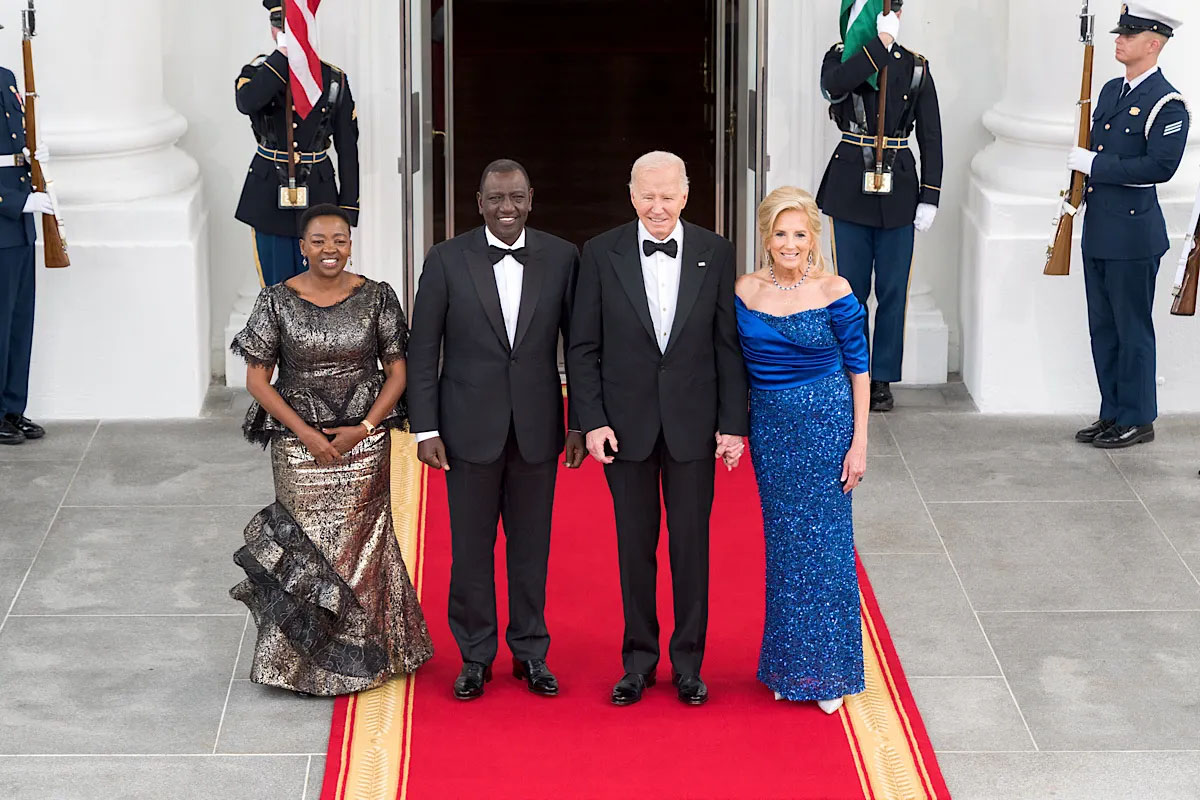
Photo Credit: Getty Images
In a recent development that has sparked widespread debate, Kenya’s President William Ruto defended the use of a private jet for his official state visit to the United States, stating it was a cost-effective alternative to the national carrier, Kenya Airways. The president’s choice has been met with criticism and scrutiny, with many questioning the transparency of the costs involved.
The government has staunchly defended the decision, emphasizing that the benefits of the visit, which included securing investment deals and reinforcing Kenya’s status as a major non-NATO ally, significantly outweigh the costs. However, the lack of specific figures has fueled public discontent and calls for greater accountability.
Kenya Airways has dismissed as fake a statement suggesting that using the airline would have been cheaper for the president. Reports estimate the cost of hiring the Dubai-owned RoyalJet company’s jet at $1.5 million, compared to the $300,000 estimated cost for business-class tickets on Kenya Airways for the entire delegation.
President Ruto, in an interview with Voice Of America, labeled the estimated cost of his trip as “completely exaggerated,” yet refrained from providing concrete numbers. This has led to a perception of disconnect between the president’s assurance of careful resource management and the public’s demand for precise information.
The controversy comes at a time when the Kenyan government is facing criticism for perceived extravagance amidst austerity measures and a cost-of-living crisis. The president’s extensive foreign travel, averaging more than three trips a month since taking office in 2022, has been justified as necessary for the country’s diplomatic and economic engagement.
Political analyst Prof Herman Manyora suggests that a more detailed explanation from the president could have mitigated the backlash, highlighting the need for considering public perception and the benefits of using a chartered plane, such as flexibility, class, and security.
The debate over the president’s travel expenses is not just about the numbers; it’s a reflection of the broader conversation on fiscal responsibility and the prioritization of national interests. As Kenya navigates these complex waters, the call for transparency and prudent use of state resources remains at the forefront of public discourse.
In conclusion, while the president’s efforts to foster international relations and attract investments are commendable, the ensuing controversy underscores the importance of balancing diplomatic engagement with fiscal prudence and transparency. The Kenyan public’s reaction serves as a reminder that governance is not only about strategic decisions but also about the trust and confidence of the citizens it serves.
















